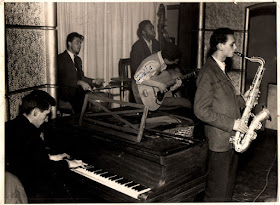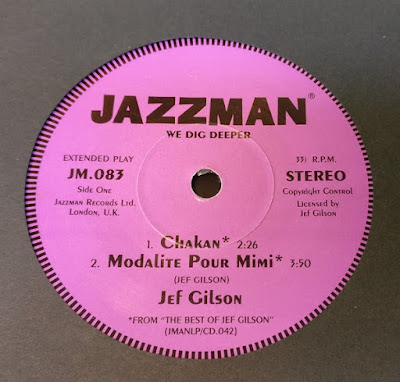Gary Lewis (born Gary Harold Lee Levitch; July 31, 1945) is an American musician who was the leader of Gary Lewis & the Playboys.
Gary Lewis is the son of Jerry Lewis and singer Patti Palmer. His mother, who was performing at the time with the Ted Fio Rito Orchestra, intended to name him after her favorite actor, Cary Grant, but her son became "Gary" as the result of a clerical error. He received a set of drums as a gift for his 15th birthday in 1960. When he was 18, Lewis formed the band "Gary and the Playboys" with four friends. Joking at the lateness of bandmates to practice, Lewis referred to them as "playboys", and the name stuck.
Lewis was the drummer, and Dave Walker was the singer and guitarist. Gary's mother was quietly funding the purchases of equipment as they believed Gary's father would not support the band financially. Without the Lewis cachet, the band was relatively anonymous. Even though he lived down the street from the Lewis family, producer Snuff Garrett was not aware of the band until a mutual friend, conductor Les Brown, informed him that the group was appearing at Disneyland and that Garrett should give them a listen.
Seeing an opportunity to capitalize on the Lewis name, Garrett put the band into the studio to develop, still financed by Gary's mother. Garrett pushed Lewis to improve his drumming skill, even getting Buddy Rich to tutor him, and, more importantly, made Lewis the singer and therefore the focal point of the group. By Lewis' own admission, his natural singing voice was not one of his strengths, and Garrett employed overdubbing techniques in the studio to enhance it. "This Diamond Ring" hit number one on the Billboard Hot 100 on February 20, 1965, making Lewis an instant star. Besides The Lovin' Spoonful, the group was the only act during the 1960s to have its first seven Hot 100 releases each reach that chart's top 10.
In addition to "This Diamond Ring", his hits include "Count Me In," the only non-British Commonwealth record in the Hot 100's top 10 on May 8, 1965, (number two); "Save Your Heart for Me" (number two); "Everybody Loves a Clown" (number four); "She's Just My Style" (number three); "Sure Gonna Miss Her" (number nine); and "Green Grass" (number eight). Of "Everybody Loves a Clown", Lewis says he composed the song as a gift for his father's birthday. He believed the song was too good, so instead of giving it as a gift, he recorded it.
 |
| Gary with The Beatles |
By 1966, Lewis was exclusively singing, replaced on the drums by, among others, Jim Keltner. His career was put on hold when he entered the U.S. Army as a draftee in January 1967, and he served during the Vietnam War era with the Eighth Army in Seoul, South Korea, until 1968. Lewis has stated that he was reluctant to go to Vietnam, but he credits the Army with being the time when he "grew up".
On his discharge, Lewis immediately returned to recording, reaching the top 40 one last time with a top 20 remake of Brian Hyland's "Sealed With A Kiss", but unable to regain his group's earlier momentum. Lewis continued touring, eventually marketing the band as a nostalgia act. He also appeared and performed on many of his father's Labor Day telethons for the Muscular Dystrophy Association. A brief attempt at starting a new band called Medecine, with Bill Cowsill of the Cowsills in 1974, was not successful. Lewis owned a music store for some years in the 1970s and developed a drug habit. By 1985, he was well enough to join the nine month “Happy Together” tour, with other groups, including the Turtles, the Buckinghams and the Grass Roots.
He continued to play with various incarnations of the Playboys, generally featuring no other original members. In January 2012, Lewis released a new single, "You Can't Go Back". In the summer of 2013, Lewis, along with a group of 1960s musicians including Gary Puckett (Gary Puckett & The Union Gap), Chuck Negron (formerly of Three Dog Night), Mark Lindsay (former lead singer of Paul Revere & the Raiders), and The Turtles featuring Flo & Eddie, toured 47 cities in Paradise Artist's "Happy Together" tour.
As of 2022, Gary Lewis and the Playboys are still touring the world on their own and occasionally with other popular acts of the 1950s, '60s, and '70s. The group performs on cruise ships, at casinos, festivals, fairs, and corporate events.
(Edited from Wikipedia)





















































